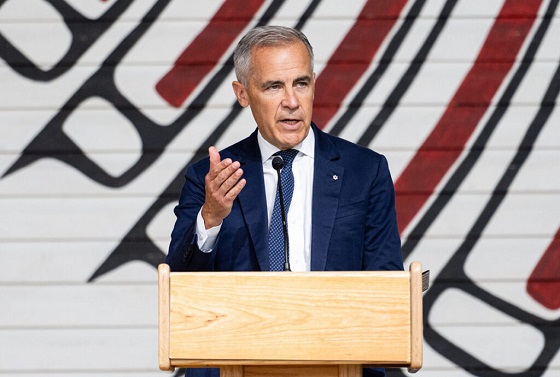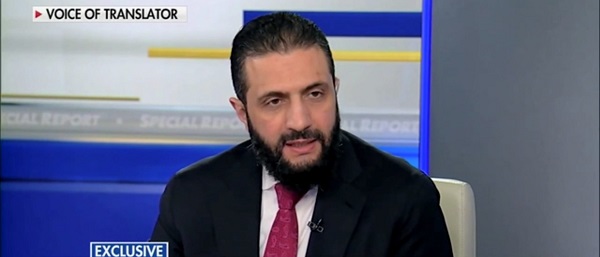Business
Watchdog Calls Out Carney’s Lack of Ethics Code

Democracy Watch Demands PM Re-Enact Full Ministerial Code and End Conflicts by Selling Investments as House Committee Probes Loophole-Ridden Ethics Law
The House of Commons Ethics Committee is finally cracking open the federal Conflict of Interest Act. It’s the first real review in years. And it’s overdue. Today, Democracy Watch is calling on Prime Minister Mark Carney to do something simple and obvious: re-issue the Prime Minister’s code for ministers and staff—publicly, in full—and work with every party to shut the gaping loopholes that have turned Canada’s ethics rules into a suggestion box.
The only publicly posted rulebook is still the 2015 “Open and Accountable Government” guide. It wasn’t signed by Mark Carney. It was signed by Justin Trudeau. Before that, Stephen Harper had his own “Accountable Government” code in 2007, which he strengthened in 2011. Paul Martin re-issued the code in 2004 as “Responsible Government,” and Jean Chrétien was the first to bring it in back in 2002. Every Prime Minister for more than two decades has put their name to a code—except Carney.
That’s a problem. Canadians deserve crystal-clear, enforceable standards: honesty, no apparent conflicts, decisions based on merit, real guardrails on political activity, fundraising, and dealings with lobbyists—and ministerial staff held to the same line. Put the rules in the PM’s own name or admit you plan to weaken them.
“Failing to re-enact the code—or watering it down—would gut already weak rules and further trash public trust,” said Duff Conacher, PhD (Law), Co-founder of Democracy Watch. “Canadians want standards with teeth, not press releases dressed up as ethics.”
Here’s what’s driving the urgency. The Conflict of Interest Act still lets the Prime Minister park massive holdings behind instruments branded as “blind trusts” or “ethics screens.” In practice, those devices often conceal participation; they don’t prevent it. That’s not oversight. That’s camouflage. Democracy Watch’s position is blunt: if you want to end the conflicts, sell the assets. Full divestment, including buyouts of stock options by Brookfield and any other connected companies, as past inquiries recommended.
“Prime Minister Carney’s so-called blind trust is not blind, and his ethics screen is an opaque mechanism that invites doubt about who benefits when the government acts,” Conacher said. “The fix is obvious: sell the investments. Anything less keeps Canadians in the dark.”
Parliament now has a choice. Use this committee review to close loopholes around blind trusts and ethics screens. Spell out what “improperly furthering private interests” really means. Put real independence, transparency, and penalties into law. And stop the double standard: cabinet and staff should face rules at least as tough as those on public servants and senators.
Democracy Watch is also urging broader reforms: clean up lobbying secrecy, slash the federal donation limit to cut off cash-for-access politics, protect whistleblowers who tell the truth, fix the federal access-to-information black box, and take the appointment of watchdogs out of the hands of the very politicians they’re supposed to police—no re-appointments, no cozy incentives.
And let’s be clear: this isn’t just Democracy Watch griping. It has credible grounding in the history of Canadian ethics law. The 1984 Starr–Sharp Task Force laid out a blueprint for a comprehensive ministerial code. Justice Parker’s 1987 commission went further, flatly recommending an end to the shell game of so-called blind trusts and, in cases of serious conflicts, requiring divestment. Parliament’s own research notes confirm it: the idea that you can “screen” away conflicts was discredited almost forty years ago. The fix was spelled out back then.
And yet here we are, in 2025, with a Prime Minister sitting on massive investments, hiding behind loopholes, and ducking responsibility to even sign his own code of conduct. Canadians see it. They know the difference between rules with teeth and ethics theatre.
Enough posturing. Enough smoke and mirrors. Re-enact the full PM Code today. Tighten the Act tomorrow. And end the Prime Minister’s conflicts by selling the assets outright. That’s how you rebuild trust, by earning it, by setting an example, and by standing on principle.
But let’s be honest: he won’t do it. He won’t because these Liberals are swamp creatures to their core. They talk transparency while cashing in behind the curtain. They preach accountability while hiding their own dealings. Canadians know it, and they’re sick of it.
Business
P.E.I. Moves to Open IRAC Files, Forcing Land Regulator to Publish Reports After The Bureau’s Investigation

Following an exclusive report from The Bureau detailing transparency concerns at Prince Edward Island’s land regulator — and a migration of lawyers from firms that represented the Buddhist land-owning entities the regulator had already probed — the P.E.I. Legislature has passed a new law forcing the Island Regulatory and Appeals Commission (IRAC) to make its land-investigation reports public.
The bill — introduced by Green Party Leader Matt MacFarlane — passed unanimously on Wednesday, CTV News reported. It amends the Lands Protection Act to require IRAC to table final investigation reports and supporting documents in the Legislature within 15 days of completion.
MacFarlane told CTV the reform was necessary because “public trust … is at an all-time low in the system,” adding that “if Islanders can see that work is getting done, that the (LPA) is being properly administered and enforced, that will get some trust rebuilt in this body.”
The Bureau’s report last week underscored that concern, showing how lawyers from Cox & Palmer — the firm representing the Buddhist landholders — steadily moved into senior IRAC positions after the regulator quietly shut down its mandated probe into those same entities. The issue exploded this fall when a Legislative Committee subpoena confirmed that IRAC’s oft-cited 2016–2018 investigation had never produced a final report at all.
There have been reports, including from CBC, that the Buddhist landholders have ties to a Chinese Communist Party entity, which leaders from the group deny.
In the years following IRAC’s cancelled probe into the Buddhist landholders, The Bureau reported, Cox & Palmer’s general counsel and director of land joined IRAC, and the migration of senior former lawyers culminated this spring, with former premier Dennis King appointing his own chief of staff, longtime Cox & Palmer partner Pam Williams, as IRAC chair shortly after the province’s land minister ordered the regulator to reopen a probe into Buddhist landholdings.
The law firm did not respond to questions, while IRAC said it has strong measures in place to guard against any conflicted decision-making.
Reporting on the overall matter, The Bureau wrote that:
“The integrity of the institution has, in effect, become a test of public confidence — or increasingly, of public disbelief. When Minister of Housing, Land and Communities Steven Myers ordered IRAC in February 2025 to release the 2016–2018 report and reopen the investigation, the commission did not comply … Myers later resigned in October 2025. Days afterward, the Legislative Committee on Natural Resources subpoenaed IRAC to produce the report. The commission replied that no formal report had ever been prepared.”
The Bureau’s investigation also showed that the Buddhist entities under review control assets exceeding $480 million, and there is also a planned $185-million campus development in the Town of Three Rivers, citing concerns that such financial power, combined with a revolving door between key law firms, political offices and the regulator, risks undermining confidence in P.E.I.’s land-oversight regime.
Wednesday’s new law converts the expectation for transparency at IRAC, voiced loudly by numerous citizens in this small province of about 170,000, into a statutory obligation.
Housing, Land and Communities Minister Cory Deagle told CTV the government supported the bill: “We do have concerns about some aspects of it, but the main principles of what you’re trying to achieve are a good thing.”
The Bureau is a reader-supported publication.
To receive new posts and support my work, consider becoming a free or paid subscriber.
Business
Mark Carney Seeks to Replace Fiscal Watchdog with Loyal Lapdog

After scathing warnings from interim budget officer Jason Jacques, Liberals move to silence dissent and install a compliant insider with “tact and discretion.”
It’s remarkable, isn’t it? After a decade of gaslighting Canadians about their so-called “fiscally responsible” governance, the Liberal Party, now under the direction of Mark Carney, finally runs into a problem they can’t spin: someone told the truth. Jason Jacques, the interim Parliamentary Budget Officer, was appointed for six months, six months. And within weeks, he did something this government considers a fireable offense: he read the books, looked at the numbers, and spoke plainly. That’s it. His crime? Honesty.
Here’s what he found. First, the deficit. Remember when Trudeau said “the budget will balance itself”? That myth has now mutated into a projected $68.5 billion deficit for 2025–26, up from $51.7 billion the year before. Jacques didn’t just disagree with it. He called it “stupefying,” “shocking,” and, this is the one they hate the most, “unsustainable.” Because if there’s one thing Ottawa elites can’t handle, it’s accountability from someone who doesn’t need a job after this.
But Jacques didn’t stop there. He pointed out that this government has no fiscal anchor. None. Not even a fake one. A fiscal anchor is a target, like a deficit limit or a falling debt-to-GDP ratio—basic stuff for any country pretending to manage its money. Jacques said the Liberals have abandoned even that pretense. In his words, there’s no clear framework. Just blind spending. No roadmap. No compass. No brakes.
And speaking of GDP, here’s the kicker: the debt-to-GDP ratio, which Trudeau once swore would always go down, is now heading up. Jacques projects it rising from 41.7% in 2024–25 to over 43% by 2030–31. And what happens when debt rises and growth slows? You pay more just to service the interest. That’s exactly what Jacques warned. He said the cost of carrying the debt is eating into core government operations. That means fewer services. Higher taxes. Slower growth. The burden gets passed to your children while Mark Carney gives another speech in Zurich about “inclusive capitalism.”
And let’s talk about definitions. Jacques flagged that the Liberals are now muddying the waters on what counts as operating spending versus capital spending. Why does that matter? Because if you redefine the terms, you can claim to be balancing the “operating budget” while secretly racking up long-term debt. It’s accounting gimmickry, a shell game with your tax dollars.
He also pointed to unaccounted spending, about $20 billion a year in campaign promises that haven’t even been formally costed yet. Add that to their multi-decade defense commitments, green subsidies, and inflated federal payroll, and you’re looking at an avalanche of unmodeled liabilities.
And just to make this circus complete, Jacques even criticized the way his own office was filled. The Prime Minister can handpick an interim PBO with zero parliamentary input. No transparency. No debate. Just a quiet appointment, until the appointee grows a spine and tells the public what’s really going on.
Now the Liberals are racing to replace Jacques. Why? Because he said all of this publicly. Because he didn’t play ball. Because his office dared to function as it was intended: independently. They’re looking for someone with “tact and discretion.” That’s what the job listing says. Not independence. Not integrity. Tact. Discretion. In other words: someone who’ll sit down, shut up, and nod politely while Carney and Champagne burn through another $100 billion pretending it’s “investment.”
Let’s be clear: this isn’t just about replacing a bureaucrat. It’s about neutering the last shred of fiscal oversight left in Ottawa. The Parliamentary Budget Officer is supposed to be a firewall between reckless political ambition and your wallet. But in Carney’s Canada, independence is an inconvenience. So now, instead of extending Jacques’ term, something that would preserve continuity and show respect for accountability, the Liberals are shopping for a compliant technocrat. Someone who won’t call a $68.5 billion deficit “stupefying.” Someone who’ll massage the numbers just enough to keep the illusion intact.
They don’t want an economist. They want a courtier. Someone with just enough credentials to fake credibility, and just enough cowardice to keep their mouth shut when the spending blows past every so-called “anchor” they once pretended to respect. That’s the game. Keep the optics clean. Keep the watchdog muzzled. And keep Canadians in the dark while this government drives the country off a fiscal cliff.
But let me say it plainly, thank god someone in this country still believes in accountability. Thank God Jason Jacques stepped into that office and had the guts to tell the truth, not just to Parliament, but to the Canadian people. And thank God Pierre Poilievre has the common sense, the spine, and the clarity to back him. While Mark Carney and his Laurentian elite pals are busy gutting oversight, rewriting the rules, and flooding the economy with borrowed billions, it’s men like Jacques who refuse to play along. He looked at the books and didn’t see “investment”—he saw a ticking fiscal time bomb. And instead of ducking, he sounded the alarm.
Poilievre, to his credit, is standing firmly behind the man. He understands that without a real watchdog, Parliament becomes a stage play, just actors and scripts, no substance. Backing Jacques isn’t just good politics. It’s basic sanity. It’s the minimum standard for anyone who still thinks this country should live within its means, tell the truth about its finances, and respect the people footing the bill.
So while the Liberals scramble to muzzle dissent and hire another smiling yes-man with a resume full of buzzwords and a Rolodex full of Davos invites, at least one opposition leader is saying: No. We need a watchdog, not a lapdog. And in a city full of spineless bureaucrats, that’s not just refreshing—it’s absolutely essential.
-

 Crime2 days ago
Crime2 days agoCBSA Bust Uncovers Mexican Cartel Network in Montreal High-Rise, Moving Hundreds Across Canada-U.S. Border
-

 Environment2 days ago
Environment2 days agoThe Myths We’re Told About Climate Change | Michael Shellenberger
-

 Business2 days ago
Business2 days agoCarney and other world leaders should recognize world’s dependence on fossil fuels
-

 Business1 day ago
Business1 day agoCarney shrugs off debt problem with more borrowing
-

 armed forces2 days ago
armed forces2 days agoWhat A Second World War Aircraft Taught Me About Remembrance Day
-

 armed forces2 days ago
armed forces2 days agoWhy we keep getting Remembrance Day wrong
-

 Alberta2 days ago
Alberta2 days agoMark Carney Has Failed to Make Use of the Powerful Tools at His Disposal to Get Oil Pipelines Built
-

 Daily Caller2 days ago
Daily Caller2 days agoEx-Terrorist Leader Goes On Fox News, Gives Wild Answer About 9/11













